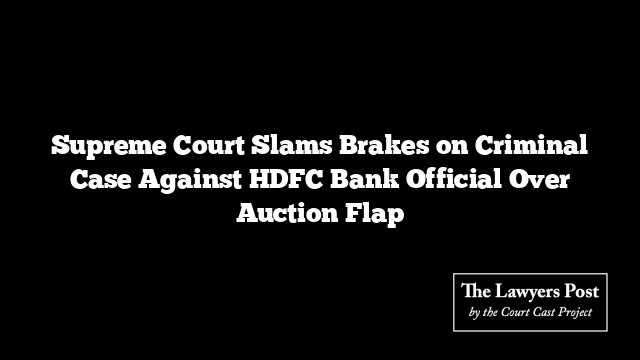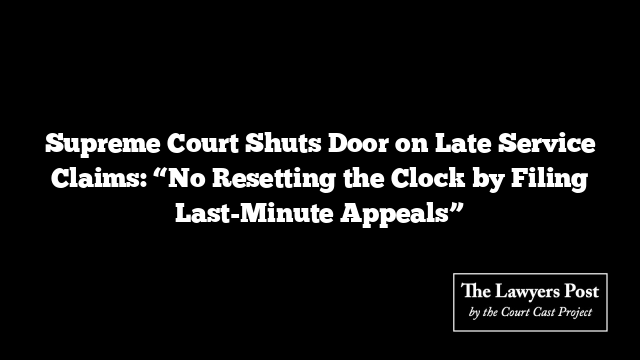The Supreme Court has put an end to a criminal case against an HDFC Bank official, ruling that he had no real hand in the controversial auction sale that sparked allegations of cheating and forgery.
The case stemmed from a property in Tamil Nadu that HDFC Bank sold at auction — a property that, it turned out, had already been acquired by the Tamil Nadu Housing Board. An irate auction purchaser accused bank officials of hiding this critical fact and took the fight to both the criminal courts and the consumer forums, dragging in the bank’s top brass and a then-Assistant Manager.
When the Madras High Court refused to quash the case, the official turned to the Supreme Court for relief. His argument was simple: back in 2012, when the auction went down, he was merely an Assistant Manager, not the “authorized officer” who could initiate action under the SARFAESI Act. Under the rules, that kind of authority belongs to a Chief Manager or someone higher up.
In fact, he said, he wasn’t even in a position to sign a sale certificate — that was handled by someone else entirely. The official insisted he had no role in the deal that led to the complaint, and pointed out that even the District Consumer Commission had tossed out related claims against him, noting that the auction purchaser had signed a possession receipt acknowledging the state of the property.
Meanwhile, the police argued that the auction buyer was left completely in the dark about the property’s Housing Board ownership until she tried to register the purchase. They claimed that the Assistant Manager wasn’t acting in good faith — a key point since Section 32 of the SARFAESI Act protects officers only when they act honestly.
But the Supreme Court wasn’t buying it. After weighing the facts, the bench — Justices Vikram Nath and Sandeep Mehta — concluded there was simply no evidence tying the Assistant Manager directly to the auction or any alleged wrongdoing. They said dragging him through criminal proceedings would amount to nothing more than “a miscarriage of justice.”
Pointing out that the official didn’t even assume managerial authority until late 2014 — long after the auction had wrapped up — the Court said continuing the case against him would be a classic case of harassment without cause.
With that, the Court quashed the criminal proceedings, drawing a firm line between civil disputes and criminal blame games.





